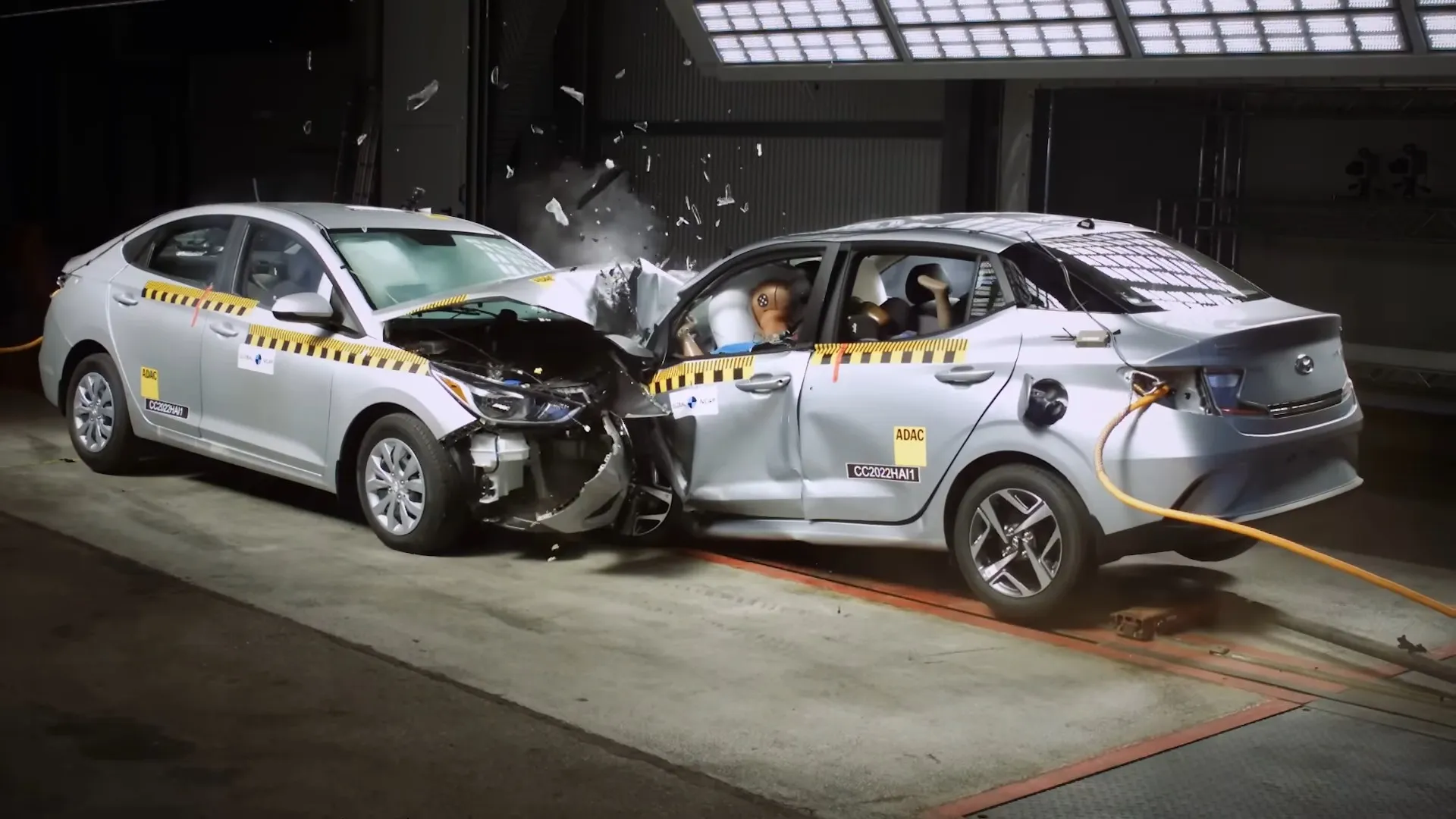FMVSS 212 Windshield Mounting Crash Test
The Federal Motor Vehicle Safety Standard (FMVSS) 212 specifies the performance requirements for windshields and their mounting systems in passenger cars to ensure they can withstand the impact forces from a moving rigid barrier. This standard is critical for automotive manufacturers as it addresses the safety concerns related to windshield integrity during collisions.
The test is designed to mimic real-world crash scenarios where the vehicle impacts a stationary object, such as another car or a fixed structure. The objective is to evaluate how well the windshield and its mounting system perform under these conditions. Proper performance ensures that the windshield does not shatter into large, lethal pieces, thereby protecting occupants from severe injury.
The test setup involves a rigid barrier moving at a specified velocity towards a passenger car equipped with a windshield that meets FMVSS 212 requirements. The impact force and the resulting deformation of the windshield are monitored using high-speed cameras and specialized instrumentation. Compliance is determined by measuring the maximum force exerted on the windshield, the extent of damage, and whether any fragments pose a risk to occupants.
The FMVSS 212 test is essential for ensuring that windshields can withstand significant impact forces without compromising safety. It plays a crucial role in reducing the risk of injury during vehicle collisions by providing a robust barrier between passengers and external hazards. This standard underscores the importance of proper windshield design, materials selection, and mounting techniques.
Compliance with FMVSS 212 is mandatory for manufacturers who wish to sell their vehicles within the United States. Non-compliance can lead to significant legal and financial consequences, including recalls and product bans. Therefore, automotive manufacturers must thoroughly test their windshields to meet these stringent requirements.
Testing facilities like Eurolab provide comprehensive services to help clients ensure compliance with FMVSS 212. Our state-of-the-art testing equipment and experienced technical staff offer the precision necessary for accurate and reliable results. We understand the importance of this standard and are committed to supporting our clients in meeting their regulatory obligations.
| Parameter | Description |
|---|---|
| Impact Velocity | The barrier moves towards the vehicle at 50 mph (80 km/h). |
| Test Duration | The test typically lasts for several seconds, depending on the impact dynamics. |
| Force Measurement | Instruments measure peak force during the collision. |
| Damage Assessment | Evaluates the extent of damage and fragmentation risk. |
Scope and Methodology
The FMVSS 212 windshield mounting crash test is a rigorous procedure designed to ensure the safety of vehicle occupants by evaluating how well windshields withstand impact forces. The scope encompasses the entire lifecycle of the windshield, from design through manufacturing and installation.
The methodology for conducting this test involves several key steps:
- Preparation of Test Specimen: Windshields are prepared according to FMVSS 212 guidelines. This includes ensuring the correct size, shape, and mounting configuration.
- Assembly into Vehicle: The prepared windshield is installed in a vehicle that meets the relevant safety standards.
- Impact Setup: A rigid barrier is positioned at a specified distance from the test vehicle. The barrier moves towards the vehicle at 50 mph (80 km/h).
- Collision Execution: The vehicle impacts the barrier, and the windshield undergoes dynamic loading.
- Data Collection: High-speed cameras capture the collision event in detail. Instruments measure force, deformation, and fragmentation.
- Evaluation of Results: Compliance is determined by assessing the maximum force, extent of damage, and potential for fragment-related hazards.
Eurolab Advantages
Eurolab offers a range of advantages that set us apart as the premier choice for FMVSS 212 windshield mounting crash testing:
- Expertise and Experience: Our team consists of industry experts with deep knowledge in automotive safety standards.
- State-of-the-Art Facilities: Equipped with the latest test equipment, we provide precise and reliable results.
- Comprehensive Services: We offer a full suite of services to support your compliance needs, from initial design reviews to final testing and certification.
- Regulatory Guidance: Our technical staff can guide you through the complexities of FMVSS 212 compliance.
Competitive Advantage and Market Impact
Compliance with FMVSS 212 is not only a legal requirement but also a significant competitive advantage. Non-compliant vehicles face potential recalls, increased costs, and damaged reputations. By ensuring compliance through rigorous testing, manufacturers can:
- Enhance Safety Reputation: Demonstrating commitment to safety enhances consumer trust.
- Avoid Legal Consequences: Prevents the risk of fines, penalties, and product bans.
- Facilitate Market Access: Ensures products meet regulatory requirements for sale in the United States.
In today’s highly competitive market, meeting FMVSS 212 standards can differentiate your brand and build a strong market presence. Eurolab supports you every step of the way to ensure compliance and maximize these advantages.





